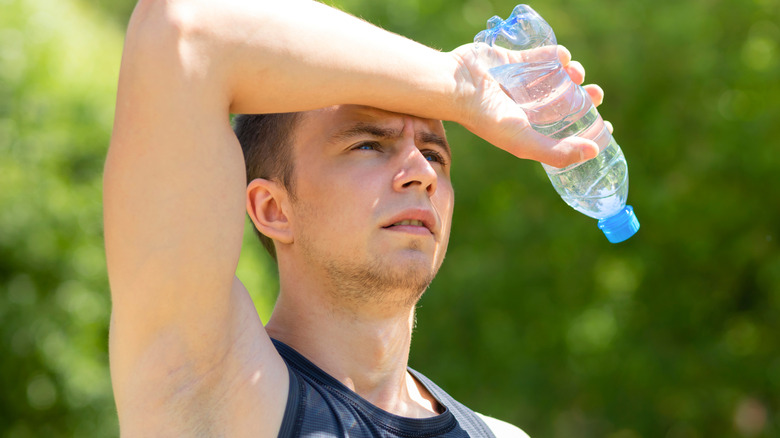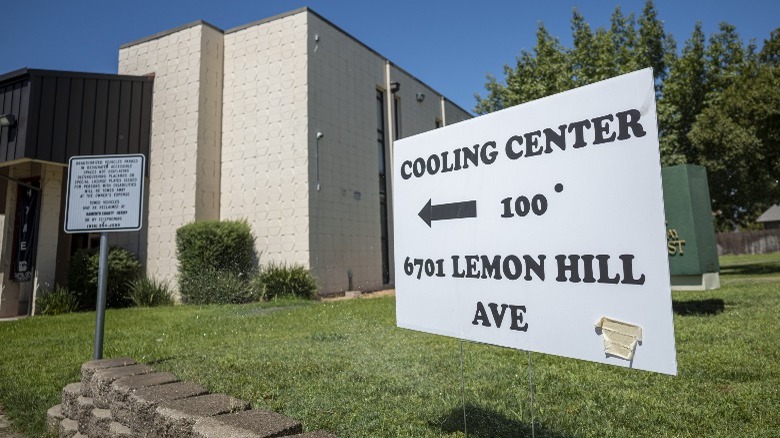How To Stay Cool As Heat Waves Make Way Across The US
Record-breaking temperatures seared enough of the country over this past week to impact roughly a third of Americans, according to ABC News. Roughly 100 million Americans have been under heat advisories as a heat wave makes its way across the country from the West Coast to the Southeast. St. Louis hit a record high of 100 degrees this past Saturday, and Las Vegas hit 109 degrees — the hottest day on record for Sin City since 1956. And Phoenix hit 114 degrees for the first time in a century.
This extreme heat is due to what is known as a "heat dome." A heat dome occurs when intense, high pressure in the atmosphere combines with warm Pacific Ocean temperatures, and winds moving the hot air east create a dome that traps the heat at the earth's surface. This results in a "dome" effect, per the National Oceanic and Atmospheric Administration (NOAA).
According to the Environmental Protection Agency (EPA), approximately 1,300 Americans die each year due to extreme heat, but there are precautions you can take to keep yourself safe.
Here are the best ways to protect yourself during a heat wave
Perhaps the most obvious thing you can do to protect yourself from extreme heat is to remain indoors as much as possible. Ideally, you will have access to air conditioning in your home, which will keep you cool. If you do not have access to air conditioning at home, you should look for public cooling centers in your area (via WebMD).
If staying inside all day is not an option, at the very least, avoid going out into the sun between the hottest parts of the day, which tend to be between 10 a.m. and 2 p.m. Dr. Cedric Dark, an assistant professor at Baylor College of Medicine in Houston, told WebMD that this is an important way to avoid heat wave-related illness. Run your errands in the early morning or evening whenever possible and wear lightweight clothing to minimize the impact of the heat.
There are several symptoms to look out for that indicate you are becoming ill from the heat, which can include dizziness, nausea, and fainting, among others. If you are experiencing any of these symptoms, Dr. Dark advises that you find shade or get indoors as quickly as possible. It is also crucial that you stay hydrated with water or sports drinks containing electrolytes, even if you do not feel thirsty. In addition, avoid consuming caffeine, alcohol, and sugar, which can lead to dehydration, per WebMD.

